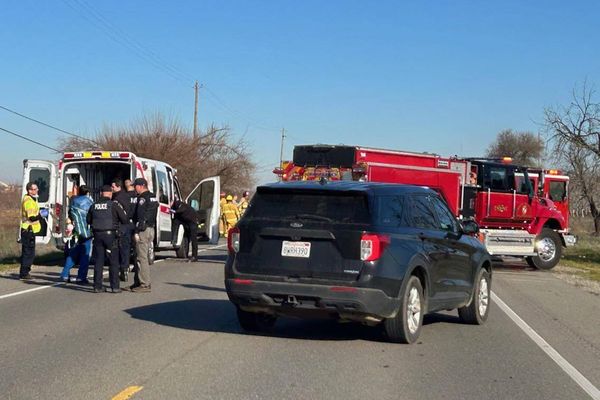
It is “unclear” how the Government will deliver its key pledge to recruit 6,500 more teachers by the end of this parliament, MPs have warned.
The Public Accounts Committee (PAC) said the Government “lacks a coherent plan”, suitable targets and sufficient evidence of what works to improve teacher recruitment and retention.
The Department for Education (DfE) should look at changes to contractual and working conditions – such as flexible working, according to the report from the cross-party group of MPs.
It added that the DfE should assess pay against other recruitment and retention initiatives to make a decision on whether it needs to do more to ensure teachers are paid the right amount.
During the election campaign, Labour pledged to recruit an additional 6,500 new teachers over the course of its five-year parliamentary term.
But the report said it is “unclear” how meeting this pledge will ensure there are enough teachers in the right areas.
The PAC said: “It is worrying the Department does not have a clear baseline or milestones against which to measure progress and be held accountable over the coming years.”
The DfE gave “no clear explanation” of how the pledge was calculated or how it will fill gaps, with an estimated need of up to 12,400 more teachers in colleges alone by 2028/29, it added.
The report said workload is cited as the top reason for teachers leaving their jobs, and pupil behaviour is “an escalating challenge” which school staff face.
The MPs have called on the DfE to collect data on the effectiveness of its behaviour hubs, and to roll them out further if they prove to be successful.
The PAC report found that teacher vacancies and the challenges of retaining experienced teachers are “greater for schools in deprived areas”.
Around a third (34%) of teachers in the most disadvantaged schools had less than five years of experience, compared to 20% in the least disadvantaged schools, it highlighted.
These schools also suffer teacher shortages in specialist subjects, such as in computing, and the report warned that disadvantaged students are “at risk of being locked out of particular careers” due to a lack of trained teachers.
Liberal Democrat MP Sarah Olney, a member of the PAC, said: “The shortfalls laid out in our report show how urgent it is that DfE lay out the detail behind its pledge for 6,500 more teachers.
“The Committee is calling for the Government to take a serious look at working conditions, flexible arrangements and increased pay for teachers.
“It is important to stress that this Committee’s role is not to make recommendations on policy – our report makes clear that Government should be exploring conditions and pay as value for money measures alongside the other recruitment and retention initiatives it is carrying out.”
In May, the Government announced a 4% pay increase for school teachers and school leaders in England from September.
Education Secretary Bridget Phillipson said schools would receive an additional £615 million of funding this financial year to help with the costs, but schools would have to find around 1% of the pay awards themselves.
Pepe Di’Iasio, general secretary of the Association of School and College Leaders (ASCL), said: “We share the concerns about the lack of clarity over the government’s pledge to deliver 6,500 new teachers.
“This does not seem anything like enough to address future need and we would urge ministers to address actual teacher shortages rather than fixate on a figure which is largely meaningless.”
He added: “The impact of national teacher shortages is often most damaging in schools and colleges serving disadvantaged communities where recruitment and retention can be particularly hard.
“This is exactly where we most need a ready supply of teachers and leaders and the fact this is difficult to secure is a major obstacle in narrowing attainment gaps.
“The rising number of teachers leaving the profession because of pupil behaviour is also a major cause of concern.
“We hear from school and college leaders on a regular basis over just how challenging this issue has become in recent years.
“Behaviour policies are robust but there must be wider action to provide schools and colleges with specialist support and investment to address the variety as well as the complexity of needs that children and young people are exhibiting.”
Jack Worth, school workforce lead at the National Foundation for Educational Research (NFER), said: “It is critical that the Government takes action now and delivers a comprehensive plan to tackle the issues that are impacting recruitment and retention or it will miss its 6,500 teacher recruitment pledge.
“Schools are anxious to see the details of the Government’s plan for supporting teacher supply.”
Shadow education secretary Laura Trott said Labour’s manifesto pledge to hire more teachers had descended into “chaos”.
She said: “They promised that taxing education would pay for new staff, yet that money is now being diverted to house illegal immigrants. Their first milestone for school readiness was hiring 6,500 new teachers, but instead there are 400 fewer.
“Under Labour, teacher numbers are falling. This Government is defined by U-turns and broken promises. Parents, teachers, and children deserve better.”
A Department for Education spokesperson said: “This Government is already delivering on our pledge to recruit and retain 6,500 more talented teachers with 2,300 more secondary and special schoolteachers in classrooms this year, as well as 1,300 fewer teachers leaving the profession – one of the lowest leave rates since 2010.
“Since day one, the Education Secretary has worked to reset the relationship with the education sector, announcing pay awards of almost 10% over two years and committed to tackle high workload and poor wellbeing including encouraging schools to offer more flexible working opportunities.
“We are committed to working with teachers as partners in the push for better, driving high and rising standards through our Plan for Change to enable every child to achieve and thrive.”







